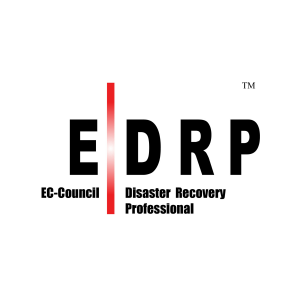EDRP Certification: Why You Should Care (Even If You’re Not in IT)
Let’s face it — disaster recovery isn’t the flashiest area of cybersecurity. It doesn’t always make headlines like ethical hacking or AI-powered threat detection. But when systems crash, data is encrypted by ransomware, or a natural disaster brings operations to a halt, none of that flash matters. What truly counts is resilience — the ability to respond quickly, recover efficiently, and keep the business running. That’s exactly where the EC-Council Disaster Recovery Professional (EDRP) certification stands out. It equips professionals with the practical skills and strategic mindset needed to navigate high-stakes crises confidently.
Whether you’re a seasoned IT expert, a systems administrator, a business continuity planner, or simply someone whose work touches sensitive data or critical operations, gaining a solid understanding of the EDRP certification can be one of the most forward-thinking steps you take. In an era where downtime means lost revenue, reputational damage, and regulatory consequences, being prepared isn’t just smart — it’s essential.

What Is the EDRP Certification?
The EDRP trains professionals to maintain business functionality during and after disruptions. It’s centered on two crucial areas:
Disaster Recovery (DR) – Recovering systems, data, and operations post-crisis.
Business Continuity (BC) – Ensuring business operations stay functional during disruptions.
Think of it as a digital-age survival guide — not with canned food, but with bulletproof data systems and recovery strategies.
Who Should Care About the EDRP?
You don’t need to be deep into cybersecurity to benefit. If your role involves tech, data, or operations, this credential applies to you.
Ideal candidates include:
IT Managers and System Administrators
Security Analysts
Business Continuity Planners
Risk & Compliance Officers
Tech professionals who want to be irreplaceable during a crisis
What You’ll Learn in the EDRP Program
Understanding the EDRP means recognizing the value of these real-world skills:
Risk Assessment – Identify potential threats and vulnerabilities
Business Impact Analysis (BIA) – Know what systems are critical
BC/DR Planning – Build practical and business-aligned recovery plans
Data Backup & Recovery – Learn modern recovery tactics
Virtualization-Based DR – Leverage cloud and virtual machines for fast recovery
EDRP Certification for Career Growth
Let’s be honest — cybersecurity is competitive. EDRP helps you stand out:
In-Demand Skillset: Business continuity and disaster recovery are vital across industries — finance, healthcare, energy, government, etc.
Risk-Ready Thinking: Companies value professionals who plan for the worst.
Complementary Learning: EDRP strengthens your profile if you already have certifications like CEH, CHFI, or CND.
If you’re aiming for a CISO, IT leadership, or consultancy role, EDRP certification importance cannot be overstated.
EDRP Certification: Quick Facts
| Item | Details |
|---|---|
| Exam Code | 312-76 |
| Format | Multiple Choice |
| Questions | 150 |
| Duration | 4 Hours |
| Passing Score | 70% |
| Delivery Mode | Online via ECC Exam Portal |
| Eligibility | EC-Council training or 2 years’ DR/BC experience |
Learn more on the official EC-Council EDRP Page
Final Thoughts on EDRP Certification
Still on the fence about whether the EDRP certification is worth your time and investment? Consider this: when disaster strikes — whether it’s a ransomware attack, data breach, or a natural calamity — will you be the one confidently leading your organization’s recovery, or the one scrambling to search for solutions online?
The EC-Council Disaster Recovery Professional (EDRP) certification is not just another line on your résumé. It’s a critical validation of your ability to protect, recover, and sustain business operations during high-pressure situations. It teaches you to think beyond immediate fixes and adopt a forward-looking, risk-resilient mindset — one that aligns technical recovery with strategic business continuity.
Whether you’re in IT, risk management, operations, or leadership, EDRP gives you the tools to act decisively, communicate clearly during crises, and ensure continuity when it matters most. In an increasingly volatile digital world, these are not just skills — they are career-defining capabilities.
✅ So yes — the EDRP certification is absolutely worth it. It prepares you not just to survive disruptions, but to lead through them with confidence, clarity, and control.
Looking for ebtry level certifications? explore this blog-Security+ or SSCP: Which Entry-level Cybersecurity Certification Is Superior to Use for Entry-Level



